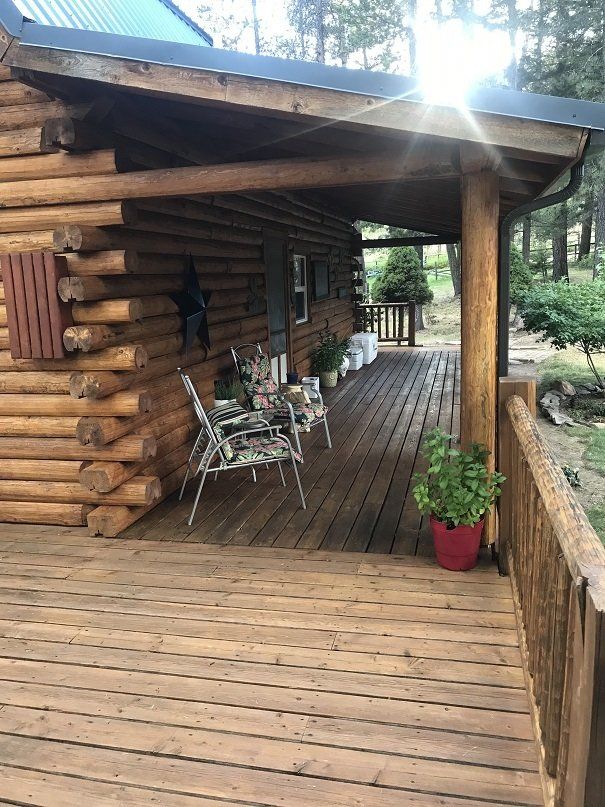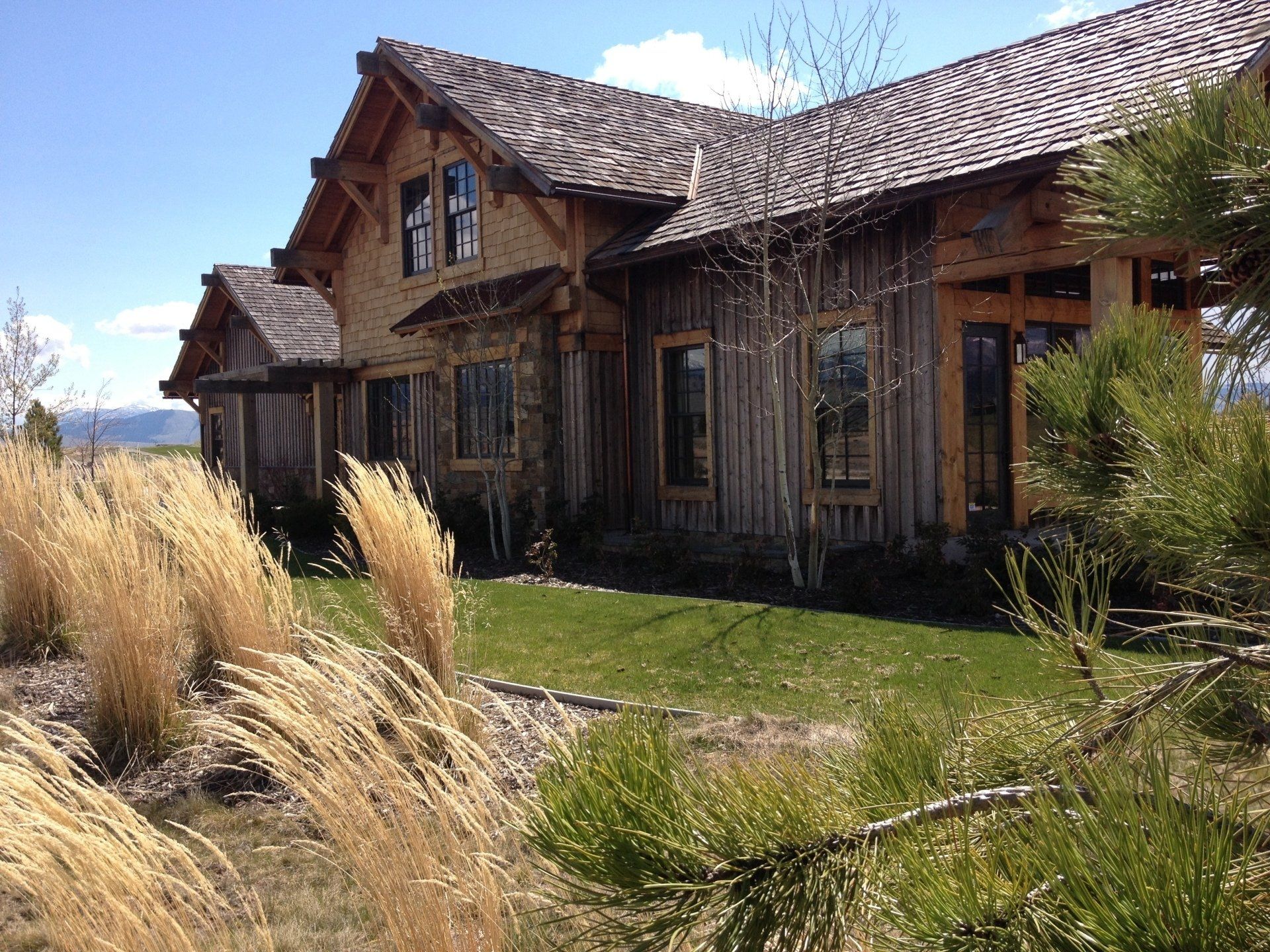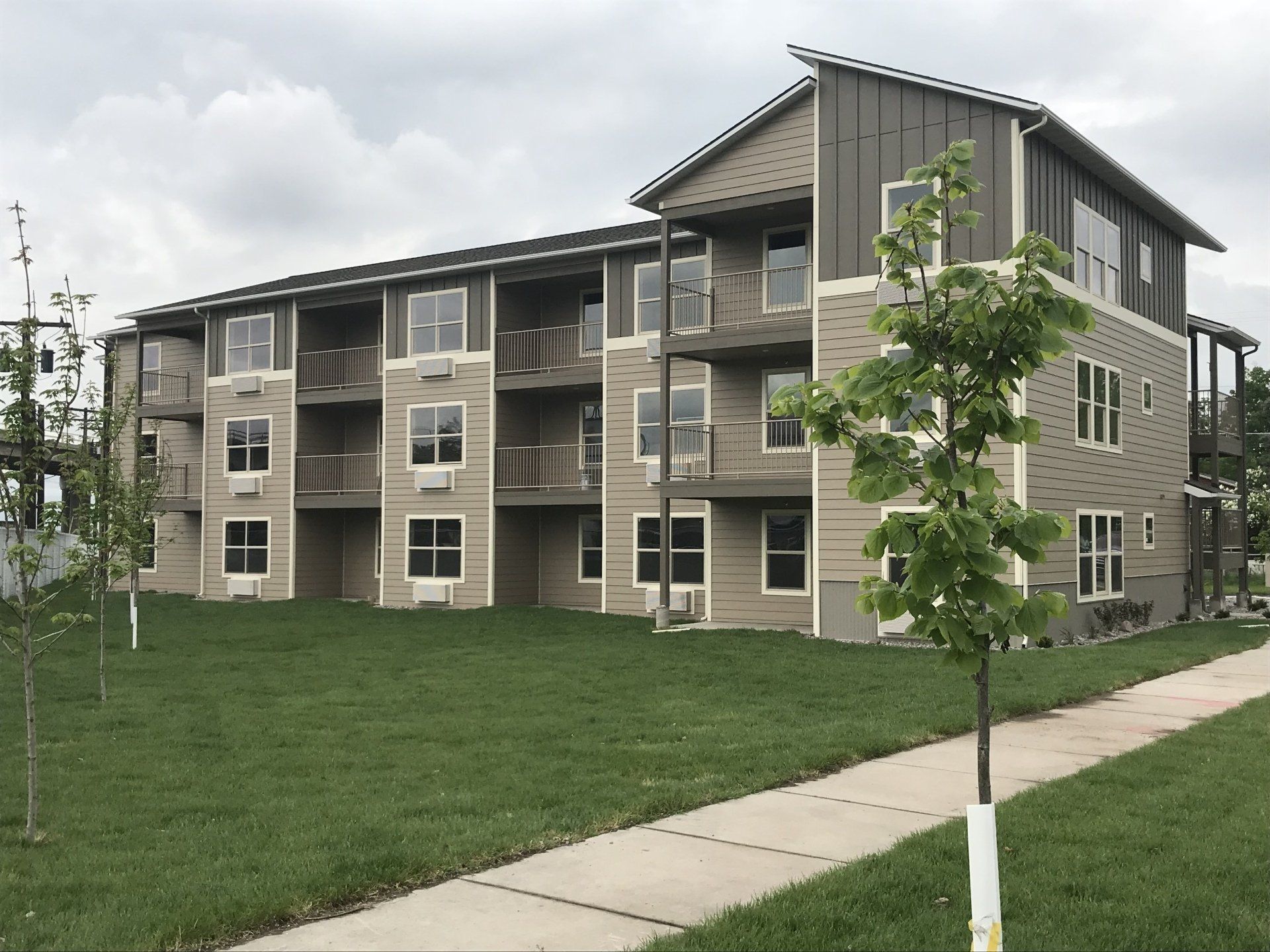Blog
Blog

By Josh Armerding
•
20 Sep, 2022
In recent years, “fixer-upper” properties, properties purchased and renovated to increase their value, have only gained popularity. Thanks to shows like HGTV’s Fixer Upper and countless social media influencers, renovating homes has become a glamorous and potentially lucrative venture. Fixer-uppers, unlike move-in ready homes, allow buyers to claim a property for a low sum and to increase the property’s value by restoring neglected parts of the house and adding new features to catch the eye of the prospective buyers and renters. Because they provide renovators with so much creative license, fixer-uppers offer a fun and unique way to diversify one’s income and to meet the ever-expanding demands of the housing market. Fixer-uppers are particularly attractive to buyers looking to convert a property into a rental unit. The continuous stream of rental dues from tenants offers an enticing incentive to invest in a fixer-upper rental and some assurance that the landlord will eventually turn a profit. Yet, like any other investment or venture, fixer-uppers are not inherently easy to manage or without their drawbacks. Before spending on your fixer-upper, consider these pros and cons of investing in fixer-upper rental properties. PRO: Lower initial purchase price for the property Fixer-upper properties have the chief advantage of having lower sale prices than move-in ready homes. On average, fixer-uppers sell for 8% less than market value, presenting an attractive option if you are looking to purchase a property to convert into a rental unit. That being said, these properties need “fixing up” for a reason, whether it be that the home has a cracked foundation or that the kitchen needs a fresh coat of paint. Many people choose to invest in fixer-uppers in order to profit from the margin of cost between the purchase price and the final sale price. Because they are so much more affordable than properties that are in peak condition, fixer-uppers make it easy to increase a home’s value and to potentially make financial gains. CON: Restorations can be costly On the downside, renovating fixer-upper properties can be a costly venture, particularly if you hire outside contractors to complete the work. Furthermore, the price of renovation heavily depends on the size and the placement of the home that you are remodeling. The cost of remodeling a two-bedroom house surrounded by houses with low property values will differ drastically from a four-bedroom house in a wealthy neighborhood. If the cost of purchasing and renovating a home outweighs the price of its final sale value, then the homeowner loses money. On the contrary, if a property owner leases out a fixer-upper, rather than selling it, the property continues to return money upon the initial investment, as opposed to the one-time transaction of a sale. In theory, therefore, fixer-upper landlords have more to gain than an owner selling their remodeled home. If done well, the rental fee has the potential to repay the cost of purchase and renovation, making it easier for the owner to eventually achieve a profit and a stable passive income. PRO: Easy to customize Fixer-uppers function as something of a blank slate for property buyers. With so many necessary renovations already under way, it is easy to customize a rental unit to suit the specific needs of the landlord and the tenant. Less expensive than building a unit from scratch, fixer-uppers provide owners with creative license and the opportunity to call the shots throughout each step of the renovation process. CON: Time consuming More often than not, fixer-uppers are time consuming projects. Property owners are almost always met with unforeseen repairs, or else must work around the schedules of their construction crews. As a result, renovations can drag on for months or even years, prolonging the landlords’ ability to turn a profit from their property and leading to a sense of dissatisfaction with their investment. Fixer-uppers can require a great deal of an owner's time and money. Ultimately, it is up to the owner to decide whether or not the investment is truly worthwhile. PRO: Lower taxes…for a while The worth of a home or property determines the rate of that property’s annual taxes. Therefore, when you purchase a fixer-upper property, your property taxes will reflect the low value of your unrenovated unit. While your taxes will reflect the property’s new value after remodeling is complete, the temporary low rate can equate to quite a sizable savings. CON : Risks damages from renters By renting out a finished fixer-upper, a property owner enters into all the risks that accompany typical rental property management. As with all rental properties, landlords with fixer-uppers expose their units to the constant cycle of damages and repairs that naturally follow renters living in the space. As the damages pile up, it can begin to feel like you spent your wealth of time, money and labor to no avail. Things to Consider Before Purchasing Your Fixer-Upper Before purchasing your fixer-upper rental property, weigh the costs of your investments in the property with your potential returns. While thoughtfully priced rental dues are sure to pay for a renovated property over time, there can be a great deal of headache for landlords before they start to see the fruits of their labor. Finding a personable and professional property management team to help you market your property, communicate with your tenants and manage maintenance is a sure way to alleviate the hassle. If you decide to invest in a fixer-upper rental property, relieve some of the stress by turning to a property management team that you can trust. Turn to ADEA.

By Josh Armerding
•
12 Sep, 2022
For landlords with rental units near college campuses, students make up a significant portion of the potential tenants, a situation that offers its own unique pros and cons. With new students enrolling in college every semester, college students offer landlords a steady stream of renters. Likewise, a close proximity to a college campus allows landlords to set higher prices for rent due to the high demand for housing. That being said, renting to college students also poses its own set of risks to landlords. As mostly first-time renters, many students lack experience responsibly caring for a property and frequently have no credit score. Furthermore, college students are more likely to have a less stable income than rental candidates that are not in school, as they must manage their job alongside the demands of their curriculum. This is not to mention that college students have a particularly high rate of turnover as renters. If you feel that renting to college students is right for you after weighing its advantages and disadvantages, consider these dos and don’ts to ensure that you meet your needs and those of your potential college-aged tenants. DO require a standard-to-rigorous screening process. A screening process is essential for any landlord to assess risks and ensure quality tenants. While landlords hold the freedom to set different parameters, we recommend creating a list of non-negotiables and accepting tenants that adhere to your requirements. As a minimum, run a criminal background check on applicants and learn about your applicants’ credit history. Since few college students have experience building credit, it is not necessarily a red flag for them to lack a credit score. Instead, look for proof of stable employment and their ability to pay a deposit on the rental unit. You can also require a cosigner, which we will discuss in more depth below. DON’T leave your renter with questions about the rental unit or the rental process. Most college students will be first-time renters, and may even be new to living away from their parents or guardians. Accordingly, you can expect them to have plenty of questions about the rental process and what it means to rent and live on your specific property. Be prepared to answer these questions so that your tenants have clear parameters to live by and are more capable of meeting your expectations for their role as your renters. Don’t make assumptions about what your tenant will and will not know about renting. It is always better to provide them with too much information, rather than not enough. DO ask for a cosigner. Because college students typically lack prior rental experience, they frequently lack a credit score and experience caring for a rental property. By requiring a cosigner, you add an extra layer of legal protection for you and your property. If your tenant claims inability to make payments, then the responsibility falls onto the cosigner. Just be sure to conduct a thorough credit screening of your tenants’ cosigners! DON’T hesitate to alert the cosigner if issues arise. If you decide to rent to college students, don’t hesitate to alert their cosigners if they fail to abide by your expectations agreed upon in your rental agreement. Sometimes the extra pressure put upon the college student from the cosigner is all that a landlord needs to resolve a problem. DO be honest about all aspects of your rental property. When marketing your rental property, it might be enticing for you to make your unit sound or appear as friendly to college students as possible. Yet, it is imperative that you remain honest about your expectations for your tenants and about what their experience as renters might look like. For instance, if you are not comfortable with your tenants hosting parties, you must make this expectation clear from the beginning. Transparency is necessary to provide a positive rental experience for you and your tenants. DO market your property on the internet and through social media. The internet should be one of your greatest assets in marketing your rental unit to college students. Now, more than ever, technology plays a vital role appealing to tenants. When seeking housing, the internet is the first, and often only, avenue that college students will explore. If you want to market to college students, then you have to be prepared to advertise through channels that they visit and in a manner that they will find appealing, such as real estate sites or through your own social media page. DON’T be afraid to seek the help of a property management company. Managing a rental property can be tricky, no matter who you are marketing your property to. While it is certainly possible to market and manage your own unit, understand that seeking a property management company to assist you in your real estate venture is an investment that will eventually turn a profit. At ADEA, we specialize in a variety of services to help remove your burden as a landlord and to effectively protect your property, whether you are renting to college students, families or anyone in-between. Let us be the help that you need.

By Josh Armerding
•
01 Jul, 2022
If you have considered property in Montana, you have probably heard about Missoula, the state’s second largest city and undoubtedly one of its key landing points. Unique from other cities, Missoula offers the charm of both urban and rural living. While a hub for local artisans and home to the University of Montana, Missoula is also a gateway to the mountains and the breathtaking Montana wilderness, two parts of the city’s identity that flow together seamlessly. Whether you are a native Montanan looking to relocate or an out-of-stater longing to fulfill your dream of living under the Big Sky, Missoula offers a little something for everyone. Here are five things to consider before taking the plunge and finding your dream home in Missoula. 1. There are Endless Opportunities for Recreation Missoula offers a diverse range of recreational opportunities. In what other city can you enjoy shopping downtown and then take a short stroll to surf the river? (Yes, you heard me. Missoula offers surfing on the Clark Fork River.) The outdoor lifestyle runs in the city’s blood, meaning that Missoula holds no end of outdoor recreation. Visitors and residents alike enjoy spending time in the city’s various parks and green spaces, as well as accessing nearby rivers and hiking trails. You can even find hiking in the heart of the city by hitting the trail and trekking the winding path to the “M,” the great letter on the hillside that proudly declares the city. Interested in something a little more laid back? No worries. Simply spend an evening taking a ceramics course or sipping a locally crafted beer. You’ll find no shortage of ways to rest and relax in this city. 2. Missoula is a College Town Home to the University of Montana’s main campus, the city appeals to countless college-age adults and young families. With its four affiliated campuses throughout the state, the university serves over 10,000 students, providing a wide range of majors and trade certifications. In Missoula, the institution draws students from all walks of life and creates career opportunities for its community. Missoula is also renowned for its top-ranked public education system, particularly for its high school district, which regularly ranks in the top five educational districts in Montana. This makes the area especially attractive for families with school-age children. 3. The City Welcomes Cyclists Although Missoula does not provide completely stellar public transportation, the city’s countless bike routes make cycling a breeze. The city boasts of over 22 miles of off-street trails and 40 miles of on-street bike lanes. Missoula even has specialty bridges and underpasses that make it safer and more convenient for cyclists to navigate over the Clark Fork River and through some of the busiest sections of town. Apps like Citymapper and interactive virtual bike maps from the city of Missoula make it even less of a hassle to travel swiftly and safely from point A to point B. That being said, you might want to consider a vehicle with four-wheel drive to explore the natural beauty of some of the surrounding rural areas! 4. The Garden City is also Home to a Vibrant Arts Community Although most outsiders know Missoula for its green spaces and proximity to Glacier National Park and Yellowstone, the city is also home to a whole host of artisans. From painters to stained glass makers, you can find art in nearly any medium in Missoula. Local artists express the unique blend of culture in Missoula, including artists from all walks of life and cultural backgrounds. The city celebrates this unique community of craftspeople through countless festivals, galleries, storefronts and the beloved First Friday events, when galleries and businesses open their doors to artists and the public for a free art walk. For a more permanent collection, check out the Missoula Art Museum, a contemporary art museum home to over 2,300 objects and the Contemporary American Indian Art Collection. 5. Housing can be scarce Missoula is not the well-kept secret that it once was. As more and more people make the move to the city, the cost of housing increases while available housing decreases. But don’t let this slow you down! The population increase in Missoula only proves that this city is a diamond in the rough waiting to be explored. For those looking to make Missoula their home, renting or leasing is a highly accessible and rewarding option. Particularly for those new to the state, renting gives the opportunity to explore the area and ensure that Missoula is the perfect fit for you. It also proves to future sellers that you are committed to the area and its way of life, making you stand out among potential buyers. At ADEA, we pride ourselves on making renting in Missoula as convenient as possible. Let us help you come one step closer to your dream home.

21 Apr, 2022
With Regulations Curtailed, How Will Missoula Add New Housing? Missoula’s long-standing housing shortage has become even more severe in recent years. New limits on the city’s ability to add new housing have threatened to worsen the crisis, but city and county officials may have a few cards left to play. What does that mean for Missoula’s housing market in the immediate future? State Legislature Hampers Affordable-Housing Efforts In early 2021, Montana placed significant restrictions on the ability of county and municipal governments to create zoning rules intended to promote the development of affordable housing. Among other ramifications of this move is the hampering of Missoula’s efforts to focus housing development in ways that helped solve local problems. New housing permits were issued in Missoula at a record-setting clip in 2021—1,338 to be precise, up 140% from 2020. But the mere addition of housing stock to a market desperate for new units might not be enough to offset the heightened demand that has increasingly priced working families out of Missoula home ownership. Lot prices alone exceed $100,000 throughout Missoula, a strong indication that new homes and subdivisions will continue to sell at a premium for the foreseeable future. Zoning Reform: A Partial Solution? Some city and county officials hold out hope that updates to greater Missoula’s zoning code can help stabilize the housing market. In the 46 years since the last substantial zoning revision, East Missoula has become more urbanized, along with Bonner and parts of the Wye. Missoula County officials expect to release a draft proposal of new zoning regulations on May 5, and every indication is that the new draft will seek to open more land to residential development while also protecting the county’s natural resources. New zoning rules may not be able to specify the addition of affordable housing to Missoula’s market, but they may be able to address the housing shortage in different ways. For instance, they can encourage the development of larger multifamily residential buildings including apartments and condominiums. Vacancy rates for these properties fell below 1% at the end of 2021, even as the University of Montana, a significant driver of rental demand, saw its latest freshman class grow by nearly 16%. Finding the Right Place for Vacation Rentals Short-term rentals have become extraordinarily popular in the Missoula area—more than 300 properties in greater Missoula are listed on Airbnb alone. While new regulations are unlikely to prevent homeowners from letting out their properties from time to time, officials may rein in the licensing of short-term rental properties that do not double as their owners’ permanent residences. Housing demand in greater Missoula is likely to remain high for the foreseeable future, and the combined effects of state law and local initiatives are likely to favor the development of larger, taller multifamily residences over single-family homes in the years to come. For homeowners, this will likely translate to resiliently high property valuations for single-family units, even as the rental market for apartments and condominiums begins to cool down.

04 Apr, 2022
Moving From Missoula? Here’s Why Leasing Your Home Might be Wiser Than Selling It. Missoula is an amazing place to live, and some days it feels like the whole world has caught on. But careers and family can force us to move on. Traditionally, that means putting your house up for sale and looking for another one in your new town, but you might be better off retaining your current home and leasing it to another family. Here are six reasons why. Avoid paying two mortgages Even in a property market as healthy as Missoula’s, it can take a while to sell a house. In the meantime, you’ll be paying two mortgages in full, just when you’ve paid for a down payment and points on a new home. The leasing market, though, is far more nimble. While you’re working out the details of your move, ADEA can list your home, research applicants, and find the right tenant. Sometimes being able to step away from a property cleanly is better than cashing out your equity in a windfall months down the line. Help others while they help you build equity Unless you own your home outright, the rents it generates probably won’t put thousands of dollars in your pocket each month. But they can help you build wealth steadily, month to month, by increasing your equity. In the meantime, Missoula’s property market doesn’t look to be cooling down any time soon, so your home’s actual equity value stands a good chance of increasing far more quickly than your mortgage payments show. While you grow your investment, you’ll be helping another family find its place in an increasingly difficult housing market. Missoula is the perfect rental market If you’ve owned your home for a decade or more, you’ve watched its value soar. If you bought within the last five years, you’ve been right in the thick of it while Missoula’s average home value rose by more than 90% and counting. As demanding as those conditions are on buyers, they’re ideal for sellers and even better for owners of investment properties. A tight housing market drives up prices, as we’ve seen, but it also allows property owners to be selective about who they’ll sign as tenants. In other circumstances, the threat of long-term vacancy might encourage you to bring in tenants with shaky work histories or credit scores. In Missoula, you won’t run that risk. Be the landlord you want to be A strong housing market means more than just being picky about your tenants. It gives you the freedom to run your business as you see fit. If you want to squeeze every dollar out of your investment property, Missoula is a fine place to do so. On the other hand, you might prefer to set your rent lower to attract a wider range of applicants. Some landlords mix a bit of altruism into their business strategies, preferring to keep rents a bit below the market’s maximum to sign younger couples, single parents, and other tenants who can use a bit of help. This can be a sound business practice, too: tenants who are grateful for saving $100 or so each month is likelier to renew their leases, and tend to take better care of the property while they live there. Your ownership style has serious implications for how you use your monthly net proceeds. Setting your rents as high as possible will typically generate a small, steady income stream, and because your property begins to depreciate as soon as you place it into service, you won’t pay taxes on all of the money you take in. Setting your rents lower won’t put much money in your pocket, and you might even have to subsidize the cost of some repairs, but in a typical month you’ll be letting someone else cover your mortgage payments without paying a penny in federal taxes for the privilege. Save mortgage interest If you’ve ever thought about owning a rental property, converting your primary residence can be the most cost-efficient way to do so. Mortgage rates are higher for rental properties purchased as such than they are for primary residences. You can expect to add at least 0.5% to the typical mortgage-lending rate in your area when you buy a house intending to lease it out. When you place your primary residence into service as a rental, your mortgage remains unchanged. Half a percentage point might not seem like much now, but the value of a low-interest mortgage will only become more pronounced in the coming years. As interest rates begin to rise, existing mortgages will represent increasingly good deals. If you bought a new home or refinanced a mortgage in late 2020 or early 2021, you might already have seen mortgage rates rise more than half a percentage point since you locked in your terms. We can help Owning a rental property is a big step, and it involves some risk. That’s where we can help. ADEA Property Management has worked with Missoula landlords since 1983, and we’d love to share the benefits of our experience with you. Whether you’re looking for someone to manage your property while you’re away, or just starting to think about what it would take to own a rental property, we have answers to your questions. Give us a call today at (406) 728-2332 or write to us at rentals@adeapm.com.

By Josh Armerding
•
01 Mar, 2022
Considering a move to Montana? You’re in good company, and lots of it. While the state isn’t exactly crowded, a steady stream of newcomers has kept Montana’s real estate markets popular and competitive. Any house-hunter knows that patience pays. In a hot housing market like Montana’s, patience isn’t just wise—it’s downright necessary. Still, even new arrivals who have done their homework and waited for the opportunity that seems absolutely perfect can find that life in Montana isn’t quite what they expected. The truth is that you can only learn so much by studying a place remotely, or even from a few brief visits. That’s why many of the happiest, most satisfied home buyers in Montana don’t buy homes at all in their first year or two—they rent. Here are three good reasons why. The conveniences aren’t all that convenient Montana values its wide-open spaces. That’s one of the reasons we love it so much, and one of its biggest attractions for people planning to move here. But those spaces typically mean that most things are a bit farther away than you might be used to. You may live closer to mountains, woods, and streams than ever before, while living farther away from grocery stores, pharmacists, and gas stations. Many newcomers are surprised by how seriously this affects their daily routines. What you used to accomplish in one trip might take three in Montana. Running a few errands on your way home from work might be a habit you’ll need to leave behind. You won’t be able to fully anticipate the changes you’ll need to make and the assumptions you’ll need to abandon until you’re here, finding new ways to take care of your day-to-day needs. By the same token, you might find that one neighborhood or town suits your style far more completely than others. Again, you won’t know until you’re here, but just knowing that you’re close to one or two especially important conveniences can help ease your transition and make you feel truly at home in Montana. That’s a difficult proposition when you’ve already locked yourself into a mortgage in a neighborhood that doesn’t quite fit the bill. Starting out as a renter gives you the time and flexibility to find your feet as a new Montanan. Montana weather is its own beast For a good stretch of the year, you’ll be doing all that extra traveling in very interesting weather. Montana’s a big state, and it supports a dizzying range of microclimates. One thing they share: they can be pretty challenging in the winter. You might not ever have put snow chains on your tires, and you might not be able to pick an engine block heater out of a lineup. Those things are standard equipment in many parts of Montana. Even urban and suburban Montanans find it important to stock up on necessities before a winter storm, and to keep plenty of candles on hand, and fresh batteries for their flashlights. None of this is meant to worry you—people have found ways to enjoy Montana winters for thousands of years now. But like the sheer distance among things you’ll encounter in Montana, the weather will affect your routine in ways that you’ll need to experience. A year or two spent dealing with the elements—and sharing stories with your neighbors—will give you a much better sense of how to make the most of our ever-changing weather. You might find that you really enjoy the change of seasons, and that you’d prefer a more remote location. You might find yourself dealing with the elements a bit too far from town. Renting lets you refine your idea of how to make a happy peace with Montana’s weather, and to put yourself in the best possible place. A mortgage means that you tackle the weather on Mother Nature’s terms. You need time and connections to negotiate a real estate market this hot Newly arrived Montanans have been dealing with long trips and capricious weather since before there was a Montana. That won’t change any time soon. The real estate sector, though, is constantly evolving. And we’re in the midst of a doozy of a seller’s market. Prospective homebuyers don’t hold many cards in Montana these days. Buyers from out of state are at an even greater disadvantage when it comes to identifying the best opportunities, making convincing offers, and closing deals on comfortable terms. Establishing yourself as a renter can give you an obvious edge or two and can help in ways you might not have considered. From a distance, you’ll be able to scour MLS listings. You might even have struck up a relationship with a real estate agent in Montana. But actually, living in a place is your best early-alert system for new home-buying opportunities. You might even hear of properties that are about to hit the market, before any of your friends back home do. When you’re quicker to make offers, some sellers are quicker to say yes. You might even enjoy an important strategic advantage while sellers weigh competing offers. Each seller is different, but your local presence in Montana—the fact that you’ve committed yourself to building a life here—might just make your offer stand out from ones made by out-of-staters. The right seller might even be inclined to leave a few dollars on the table if it means passing their home along to someone with local roots, even if those roots only started growing a year or two ago. Montana is different. That’s why we love it. It’s also why you should consider getting your feet wet before buying a home here. Renting your first Montana home is a smart way to make your money and your time work in your favor.

01 Mar, 2022
The right property manager can save you time, money, frustration, and worry. But how can you be sure that you’ve chosen the right one for you? At ADEA, we’re proud of how well we serve our clients, but we know that you’ll hear the same thing from any property manager you consider. We’d like you to choose us, but we’re even more serious about helping you find a property management company that fits your current needs and future goals. Let’s look at four things that you can do to cut through the marketing and learn whether a given property manager is ready to deliver the reliability, service, and support you need. Ask Around If you know an owner or two of rental properties in your area, you might have spoken with them by now. If not, this is a good time to contact other owners to see who’s managing their properties and what they think of their experiences. Even if you know a fellow owner or two, you can gain a much clearer understanding of the local property-management landscape by digging in an doing a little research of your own. Take some time to look for rental properties similar to yours, then check your County Assessor’s website to learn who owns them. With just a few quick questions to people in your situation, you can go a long way toward weeding out property managers who might not work for you. If you need some help identifying rental properties, your city should have records of every property licensed as a rental. Fees and Terms Once you’ve shortened your list of potential property managers, sit down with each one of them for a quick informational interview. Some might try to sign you up right away, which is their right, but you shouldn’t be ready to commit at this stage. Instead, take notes on the fees charged by each PM company, the services they cover, and whether those terms are negotiable. Your notes should follow a consistent format to make comparisons easier once you’ve spoken with every property manager on your list. Be sure to ask for a sample financial statement, just to be sure that it spells things out clearly and comprehensively. If you don’t have a tenant in place, ask how each property manager vets prospective leasers. This is also a good time to ask a few worst-case questions. How does each property manager handle unpaid rents or unruly tenants? If tenants leave before their leases expire, how does the property manager respond? How are available properties listed, and what is the typical turnaround time from listing to signing? History and Company Structure In theory, anyone with a strong sense of responsibility and good people skills can learn what it takes to become a good property manager. In reality, you really do need someone with a bit of experience—or access to someone who does. More often than not, the difference shows up in the way your property manager handles your finances, not the property itself. Even if you haven’t signed your first tenant, you know that owning a rental property isn’t a matter of just sitting back and watching the money roll in. You’ll have to dip into your reserves during lean months when repairs or late rent payments cut into your net proceeds, and you’ll make up for those months when things get back to normal. The same ups and downs affect your property manager. Be sure that any property manager you consider has the financial reserves keep things rolling even when tenants fall on hard times (or just flake out), and the experience to insulate you a bit from those bumps in the road. That experience can be secondhand: a younger representative of an established property management company still has a lot of institutional resources to fall back on when things get rough. A highly experienced property manager striking out on their own and operating on a shoestring might be a bigger gamble. Your Personal Goals Finally, consider your own personal aims and ownership style. For some property owners, the perfect tenant is willing to pay above market value for a property that includes a lot of extra services like landscaping and snow removal. For others, the perfect tenant is a single parent who’s grateful to pay a bit below market value for a house they personally keep in good shape. The tradeoffs go beyond monthly proceeds: you might make less each month from that single parent, but you’ll also increase your chances of having an excellent tenant for years and years. This is where your long-term strategy speaks directly to your relationship with your property manager. Don’t be afraid to discuss these matters with any PM company you interview. In many ways, hiring a property manager is like signing a tenant. You wouldn’t hand the keys off to the first person who showed up at your doorstep with a pen in hand, and you shouldn’t rush into a binding agreement with a property manager, either. With a bit of legwork and some pointed questions, though, you can make sense of the options available to you. Good luck, and we hope to hear from you soon!





